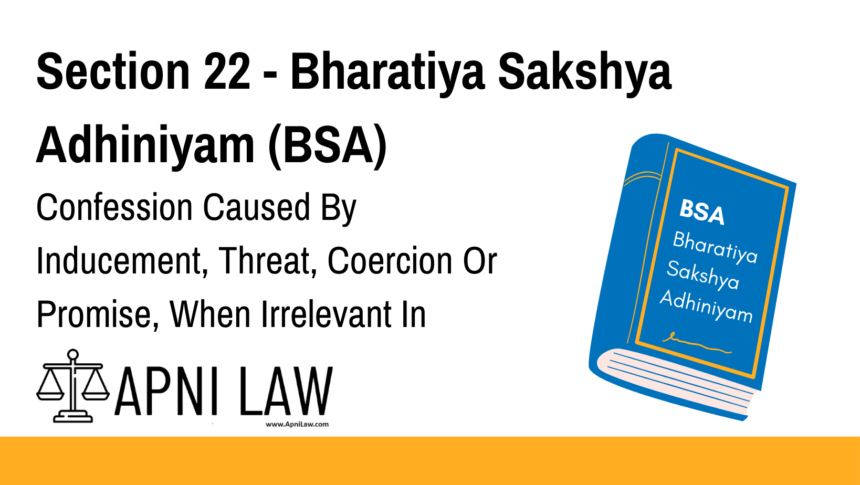Code
A confession made by an accused person is irrelevant in a criminal proceeding if it appears to the Court that the confession was caused by:
- Any inducement, threat, coercion, or promise,
- Relating to the charge against the accused,
- Made by a person in authority,
- And sufficient, in the Court’s opinion, to give the accused reasonable grounds to suppose that by confessing, they might gain some advantage or avoid any evil of a temporal nature in connection with the case.
Provisos:
- If the influence of the inducement/threat/coercion is fully removed, the confession may become relevant.
- A confession does not become irrelevant merely because:
- It was made under a promise of secrecy,
- It was obtained by deception,
- The accused was drunk,
- It was made in response to questions the accused wasn’t obligated to answer,
- The accused wasn’t warned about the right to remain silent.
Explanation
Section 22 sets safeguards to ensure that confessions used in criminal trials are voluntary and trustworthy.
⚖️ The section protects accused individuals from:
- Forced confessions,
- Confessions made under undue pressure,
- Confessions made out of fear or hope of benefit.
However, courts retain discretion. If a confession is made voluntarily and is not the result of pressure—even if obtained through trickery or secrecy—it may still be admissible.
Illustration
A is accused of theft. A confesses after a police officer tells him, “If you confess, you’ll be released quickly.”
This confession is not relevant—it’s based on inducement from a person in authority.
A confesses to his cellmate thinking their talk is private.
This confession may still be admissible, as it wasn’t made under threat or inducement, even if the cellmate was a planted informant.
Key Concepts
- Confession must be voluntary to be admissible.
- Threats, inducements, or promises by authority figures invalidate confessions.
- Trickery or lack of caution does not necessarily render a confession inadmissible.
- “Temporal advantage” means worldly, legal, or practical benefits or harms (like lighter sentence, early release, etc.).












